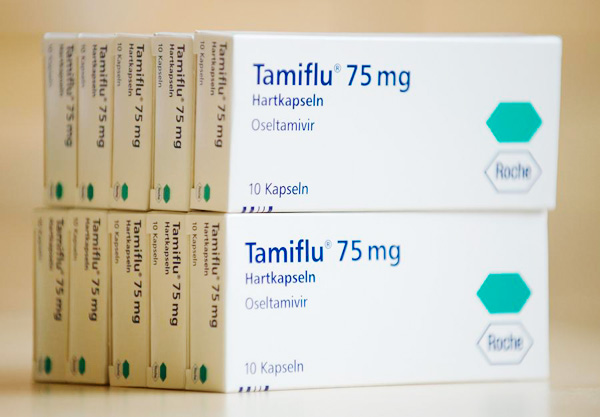Stockpiles of Roche Tamiflu drug are waste of money
Researchers who have fought for years to get full data on Roche's flu medicine Tamiflu said on Thursday that governments who stockpile it are wasting billions of dollars on a drug whose effectiveness is in doubt.
In a review of trial data on Tamiflu, and on GlaxoSmithKline's flu drug Relenza, scientists from the respected research network the Cochrane Review said that while the medicines can shorten flu symptoms by around half a day, there is no good evidence behind claims they cut hospital admissions or lessen complications of the disease.
"There is no credible way these drugs could prevent a pandemic," said Carl Heneghan, one of the lead investigators of the review and a professor of evidence-based medicine at Britain's Oxford University.
The review's main findings were that the medicines had few if any beneficial effects, but did have adverse side effects that were previously dismissed or overlooked.
"Remember, the idea of a drug is that the benefits should exceed the harms," Heneghan said. "So if you can't find any benefits, that accentuates the harms."
Yet Roche, which has been under fire for several years over its refusal to allow the Cochrane team unrestricted access to Tamiflu data, rejected the findings, saying it "fundamentally disagrees with the overall conclusions" of their study.
"We firmly stand by the quality and integrity of our data ... and subsequent real-world evidence demonstrating that Tamiflu is an effective medicine in the treatment and prevention of influenza," it said in a statement.
Tamiflu sales hit almost $3 billion in 2009 - mostly due to its use in the H1N1 flu pandemic - but they have since declined.
The drug, one of a class of medicines known as neuraminidase inhibitors, is approved by regulators worldwide and is stockpiled in preparation for a potential global flu outbreak. It is also on the World Health Organization's "essential medicines" list.
The United States has spent more than $1.3 billion buying a strategic reserve of antivirals including Tamiflu, while the British government has spent almost 424 million pounds ($703 million) on a stockpile of some 40 million Tamiflu doses.

















